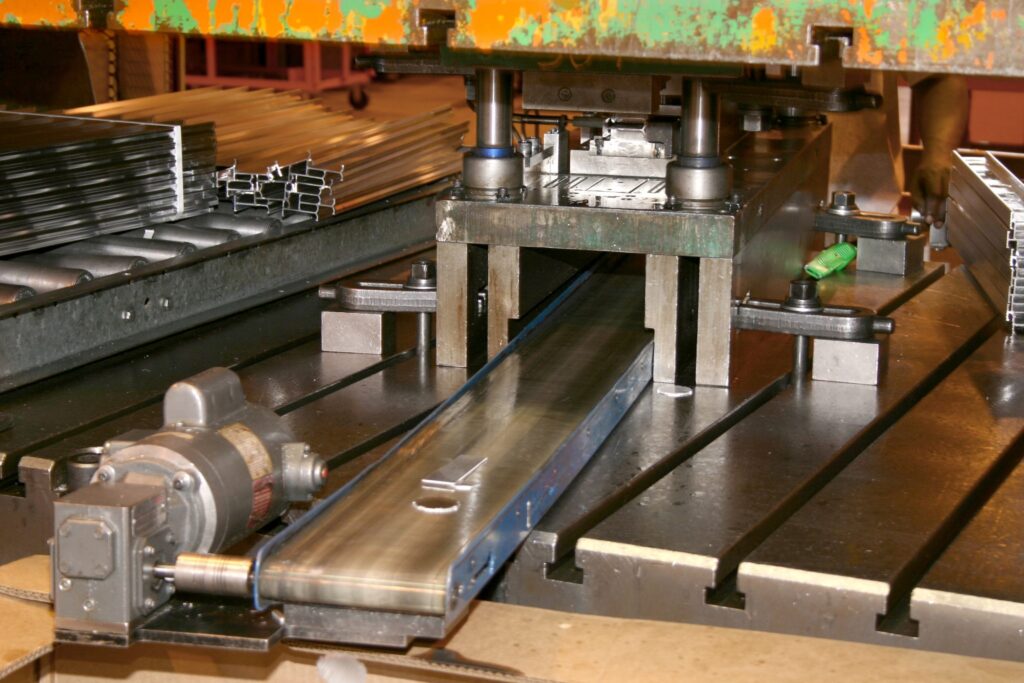Here are some Applications for Conveyor Automation.

Automatic conveyors are extensively used in industrial automation to enhance efficiency, productivity, and accuracy across various industries. Some of the notable applications for using automatic conveyors in industrial automation include:
- Manufacturing and Assembly Lines: Automatic conveyors are a cornerstone of manufacturing and assembly processes. They transport components and products between different workstations, enabling seamless assembly and reducing the need for manual material handling. This is crucial for industries like automotive, electronics, appliances, and consumer goods.
- Packaging and Material Handling: Conveyors play a key role in packaging operations, transporting products to packaging stations, labeling machines, and quality control stations. They ensure consistent product positioning and spacing, leading to efficient packaging and reduced errors.
- Distribution and Warehousing: In logistics and distribution centers, conveyors are used for sorting, merging, and diverting packages. Automated conveyor systems enable efficient movement of goods from receiving areas to storage locations and then to shipping docks, minimizing human intervention and speeding up order fulfillment.
- Food and Beverage Processing: In the food and beverage industry, conveyors are used for transporting ingredients, processed foods, and packaging materials. They help maintain hygienic conditions, reduce contamination risks, and improve the overall efficiency of production and packaging processes.
- Pharmaceuticals and Healthcare: Automated conveyors are employed in pharmaceutical manufacturing for tasks like filling, labeling, and packaging medications. They ensure precision, reduce the risk of errors, and adhere to strict quality control standards.
- Mining and Material Extraction: In industries like mining and quarrying, conveyors are used to move bulk materials such as minerals, ores, and aggregates. They enable efficient transport from extraction sites to processing and storage areas.
- Automated Storage and Retrieval Systems (AS/RS): These systems use conveyors to automatically retrieve and store products in high-density warehouses. They optimize space utilization and accelerate the storage and retrieval process.
- Automated Guided Vehicles (AGVs) Integration: Conveyors can work in tandem with AGVs, which are mobile robots designed to move materials within a facility. Conveyors help load and unload AGVs, enhancing their efficiency and extending their capabilities.
- Airports and Baggage Handling: In airports, conveyors are crucial for handling baggage. They transport luggage from check-in counters to baggage claim areas, allowing for efficient and accurate sorting and routing.
- E-commerce and Retail: Automated conveyors are essential in e-commerce warehouses, enabling the sorting and routing of packages for rapid order fulfillment. They are also used in retail distribution centers to move products from storage to store shelves.
- Textiles and Apparel: Conveyors assist in the movement of fabrics, garments, and apparel items throughout the manufacturing process, including cutting, sewing, and packaging stages.
- Automotive Industry: Conveyors are integral to automotive manufacturing, assisting in the movement of vehicle components through various production stages, from welding and painting to final assembly.
These applications highlight the versatility of automatic conveyors in various industries, where they contribute to increased efficiency, reduced labor costs, improved product quality, and enhanced overall operational effectiveness.